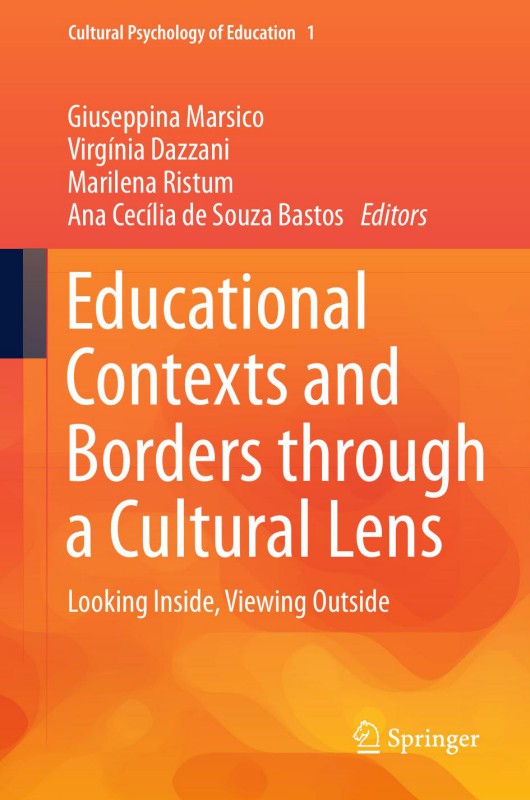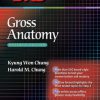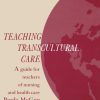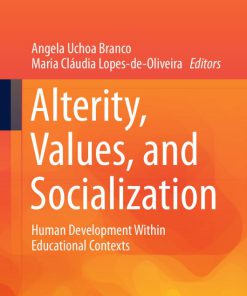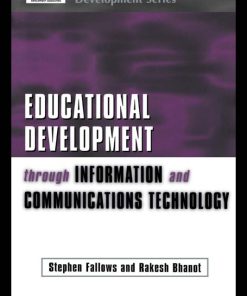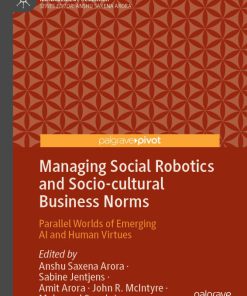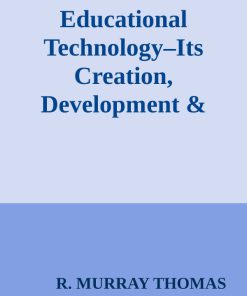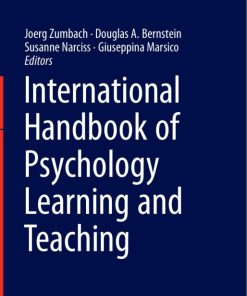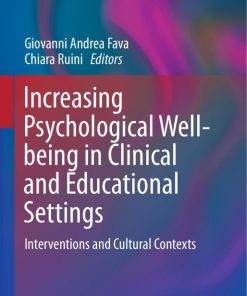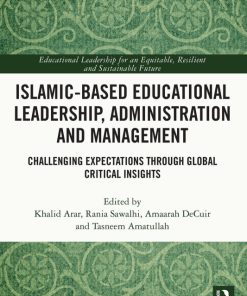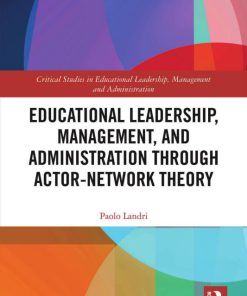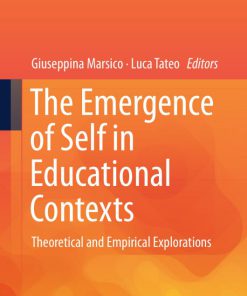(Ebook PDF) Educational Contexts and Borders through a Cultural Lens Looking Insid 1st edition by Giuseppina Marsico 3319187651 9783319187655 full chapters
$50.00 Original price was: $50.00.$25.00Current price is: $25.00.
Authors:Giuseppina Marsico, VirgÃnia Dazzani, Marilena Ristum, Ana Cecilia de Souza Bastos (eds.) , Series:Psychology [226] , Author sort:Giuseppina Marsico, VirgÃnia Dazzani, Marilena Ristum, Ana Cecilia de Souza Bastos (eds.) , Languages:Languages:eng , Published:Published:Sep 2015 , Publisher:Springer
Educational Contexts & Borders through a Cultural Lens Looking Insid 1st edition by Giuseppina Marsico – Ebook PDF Instant Download/DeliveryISBN: 3319187651, 9783319187655
Full download Educational Contexts & Borders through a Cultural Lens Looking Insid 1st edition after payment.

Product details:
ISBN-10 : 3319187651
ISBN-13 : 9783319187655
Author : Giuseppina Marsico
This book provides a “context” of discussion for researchers and educational experts in order to rethink the relationship between actors, practices and borders within the educational contexts. The research in educational psychology has often challenged the concept of “educational context”. According to the different theoretical frameworks, the construct of contexts, their borders and the dimensions to be taken into account have all been defined in different ways. The book offers a reflection that goes from theory to practice and backward from practice to theory. The main research questions the book addresses are how actors, i.e. teachers, parents and students, educators and professionals, with their own identity and social representations, build their educational practices or their shared cultural spaces where knowledge is generated, defining the borders of the educational contexts. The book proposes that a border is a type of membrane within and outside the educational setting bringing together different actors, groups and cultures. The book presents the perspectives of scholars and educational experts from various parts of the world, including Brazil, Argentina, Italy, Japan, and the United Kingdom. They shed light on what happens at the border in different cultural contexts and what the relationship is between the educational setting and the other life contexts or micro-cultures.
Educational Contexts & Borders through a Cultural Lens Looking Insid 1st Table of contents:
1 Introduction
Context, Borders, and the Bildungsroman
From Theoretical Perspective to Situated Experience
Acknowledgments
References
Part IContexts, Borders and Education:Theoretical Coordinates
2 Boundaries Within and Between Contexts
Introduction
Vygotsky and Bernstein
Mediation
Power and Control in Institutions
Speech and Social Situation
Bernstein and Recontextualization: Instructional and Regulative Discourse
Examining Pedagogic Modalities
Mediation: Explicit, Implicit, or Invisible
Social Positioning
The Regulation of Social Position
Conclusion: The Advantages of Synthesis
References
3 Continuity and Discontinuity of the Educational Context: Early Leavers’ in-Between Life Stories
Introduction
Guided Development: Autopoiesis, Anastylosis, and Deviance
Six Case Studies
Gianna: A Silent Leaving
Lucia: School “Nomadism” and Life Trajectory
Tito: In Search of Identity
Emiliano: Losing Aspirations at 18
Giorgio: A Feeling of Injustice
Marco: A Suspended Life
Conclusions
Acknowledgments
References
4 Beyond the Micro–Macro Opposition: The Multidimensionality of Educational Processes
Education-Society Relationship
Classic Theoretical Approaches
Contemporary Theoretical Approaches: The Multidimensionality of Educational Processes
Conclusions
References
5 Dialogues Between Psychology and Education: Mediation of Competence Using a Historic and Cultural
Introduction
Competence Development: Psychological and Educational Bases
Competence and the Cultural and Historical Dimension in Human Development
Conclusions
References
6 The Dynamics of Self–Other Relationships in Educational Contexts: The Emergence of Values Through
Cultural Roots of Educational Psychology
Dialogical Educational Psychology
Dialogism in Vygotsky
Dialogism in Bakhtin
Social Interaction Patterns, Cultural Practices, and Social Values: The Dynamics of `I-Other’ Relati
No One’s Land: The Unacceptable Absence of Teachers’ Planning on Ethical-Moral Guidance Within Class
Final Remarks: Ethics and Morality Are Education Business!
References
Part IIEducational Contexts Througha Cultural Lens. A CaseStudy: Brazil
7 Conceptions of Education and Its Influence on the Brazilian Educational System: Some Examples Deri
The Contemporary Crisis in Education and the Resumption of the Historical Roots
Education Conception of the Indians and of the Oral Traditions in Brazil
Education Conception of Jesuits and Their Contributions to Brazil
The Education of Modernity
Conclusion
References
8 Evidence of Medicalization in Medical Discourse From the Inaugural Theses About School Hygiene in
Introduction
Theoretical and Methodological Considerations
Document Analysis and Selected Sources
Stages of Data Analysis
Pre-analysis
Content Analysis
Results and Discussion
Conclusions: Evidence of Medicalization
References
9 School and Child Development: The Real and the Ideal of Brazilian Educational Context
Human Development: Historical and Cultural Processes
Challenges and Contradictions of the Everyday Educational Context
Liberating Education: The Horizon of Emancipation
Partnership Versus Acting as an Expert
Collective Action Versus a Focus on Individual Care
Actions Aimed at Emancipation Versus Tutoring
References
10 “Becoming Professionals”: Exploring Young People’s Construction of Alternative Futures
Self-regulation as Semiotic-Dialogical Emergence
The Perspective of Cultural Psychology
The Perspective of the Dialogical Self
The Emergence of a New Sense of “Becoming”
Method
Family, School and Work: Central Spheres of Experience for Brazilian Youth
Case Synopsis
George—“I Can Trace My Own Path, I Plan My Future”
Marcelo—“I’m Pursuing a Career, and I’m Increasingly Growing”
Neuza—“Today, My Goal Is to Build a `Blue Ocean’ of Tranquility in My Professional Career”
Case Analysis
Time 1
Time 2
Time 3
The Architecture of the Self-in-Motion
Concluding Remarks
References
11 Editorial Intermezzo
Acknowledgments
Reference
Part IIIInsideness
12 The Development of Logical Tools Through Socially Constructed and Culturally Based Activities
Introduction
Theoretical Background
Method
The Teaching Experiment
Results
Intra-individual Aspects: Deduction as Manipulation
Intra-individual Aspects: Deducibility According to the Available Data
Inter-individual Aspects: Cooperation
Inter-individual Aspects: Negotiation
Ideological Beliefs: Rules’ Representation
Discussion
References
13 Meanings of Violence: The Classroom as a Meeting Point for Discourse and Practices
The Human Actions
Observation of the Classroom
What the Data Reveal
Actions When Facing Episodes of Fighting Between Students
Actions When Facing Episodes of Undisciplined Behavior and Lack of Attention
Actions in Response to Episodes of Playing Guided by Violence
Comments from Teachers
Final Considerations
References
14 The Formation of the Subject in the Family-School Boundary During Adolescence
Introduction
The Educational Self and the Emergence of the Subject: A Novel Approach to the Study of the Self in
The Dialogical Self and the Dynamics of I-Positions: The Dialogic Construction of the Educational Se
Method and Idiographic Perspective: Reading Between the Lines of the Educational Self-narratives
Bete’s Case Analysis: Dialogic Interactions with Significant Others and Alternating Voice Domains in
5th and 6th Grades: Academic Failure and Changing Schools
High School to the Present
Final Thoughts
References
15 Everyday Child Care in Daycare Centers: An Ethnographic Study
Introduction
Methodology
Results and Discussion
On the Neighborhood and the Daycare Center
Care in the Daycare Center: Between Nourishment and Planning
Teachers Who Are `mothers’
“Needy” and Autonomous Children
Final Thoughts
References
16 Culture and Affect in the Practice of English Teaching as a Second Language
Introduction
The Feeling of Being Non-native
Teachers as Promoter Signs
Teachers’ Identity and Dialogical Self Theory
Borders and the Theory of Social Representations
I Speak English, but What English Do You Speak?
Who Can Learn English?
Borders at School
Expanding Those Borders
Conclusions
Acknowledgement
References
Part IVOutsideness
17 Boundaries Between Art and Education: The Case of the Laje Collection
The Wisdom of Experience
Poetic Motion in the Narratives of Visitors of the Laje Collection
Laje Collection: A Crossing Boundaries’ Phenomenon
A Few Theoretical Reflections: Art as a Rupture
Final Remarks: What Can We Say About Narrated Experiences?
References
18 The Potential of the Globalization of Education in Japan: The Japanese Style of School Sports Act
Junior High School in Japan
Bukatsu
Institutional and Conventional Background that Supports a Way of Bukatsu
Globalization of Education in Japan
Is Globalization Leading to Imperialism?
Globalism Has no Specific Direction
Can Bukatsu and Japanese Sports Change? Possible Unexpected Effects of the Globalization of Educatio
Bukatsu Reformation Plan
Beyond the Bukatsu Reformation
Acknowledgments
References
19 Parental Proxy Talk in Japanese Parents How Does a Parent Express Oneself Through a Baby’s Voice?
Introduction
Asymmetry of Communication Between Parents and Preverbal Infants
Early Communication
Infant-Directed Speech
Parental Proxy Talk
Procedure
Four Types of Parental Proxy Talk
Discussion
References
20 The Handcrafting Activity of Goldsmiths and Conceptual Thinking
Scientific Knowledge or School Knowledge?
A Look at the History of Jewelry
Goldsmithing and Conceptual Thinking
Conclusion
Acknowledgments
References
21 Learning at the Family–School Boundary: When New Roles and Identities Are Created
The School as a Channel for Social Mobility
Schooling in-Between Family and Work
Representations of School: An Ally, a Stranger (an Outsider), a Traitor?
Educational and Occupational Opportunities Emerging for the Parents Themselves When Creating Strateg
References
Part VBetweenness
22 Parental Involvement: Possibilities and Tensions
Introduction
Parental Involvement as a Professional Activity
Parent Involvement as a Negotiated Activity
Tensions
Conclusion
References
23 Negotiation in the School Context: The Meanings Ascribed by Teachers
Introduction
Negotiation
Meanings
The Aims of the Study
Actors and Conflicts in the Family–School Relationship
Situations that Lead to Opportunities for Negotiation
Conflict Management Styles
Final Considerations
References
24 School as Work or Work as School: Meanings in-Between for Children from Different Cultural Contex
Children and Work: A Theoretical Framework Within Cultural Psychology
Contextualization: An Abridged History of Working Children
Methods
Meanings in Between: Work, School, and Childhood
Final Considerations
References
25 School Between Work and Family: A Study with Young People in the PROJOVEM Program
Introduction
The National Policy of Young People’s Inclusion
Study Steps
Analysis of the Forms of Relationships
How PROJOVEM Impacted Permanence
Conclusion
References
Part VIConclusion
26 Borders in Education: Examining Contexts
Context: A Once and Future Concept
Educational Contexts in Contemporary Cultural Psychology
Educational Context and Borders
People also search for Educational Contexts & Borders through a Cultural Lens Looking Insid 1st:
educational contexts examples
educational context
educational context meaning
educational borders clipart
borders of the context

